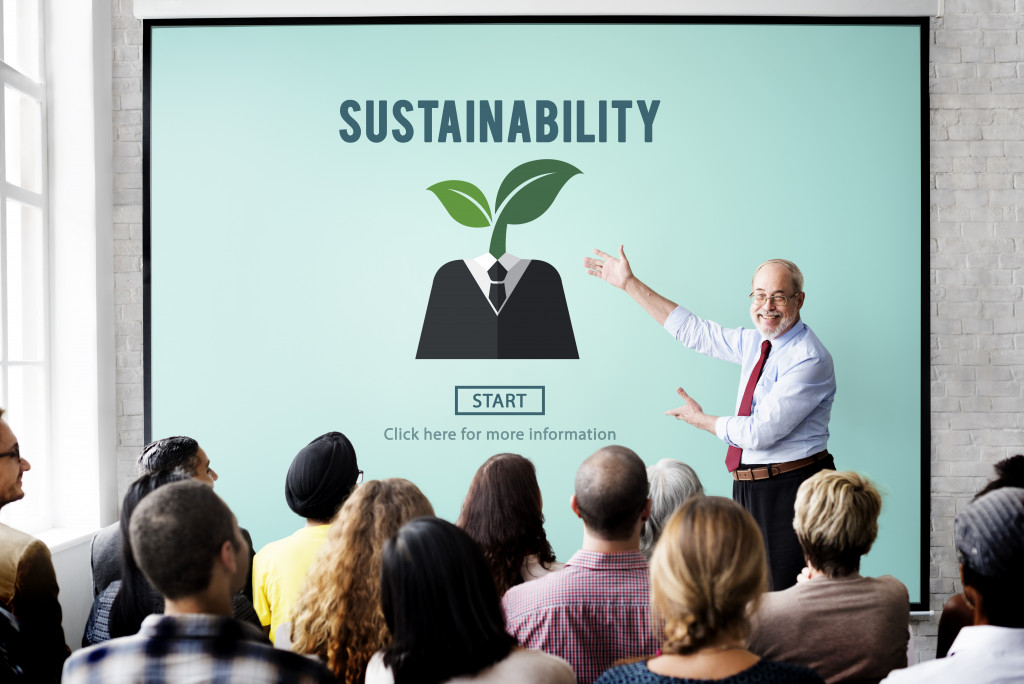Regarding sustainability, businesses often focus on environmental issues such as conserving energy or reducing waste. And while these are important aspects of sustainability, they’re not the only ones. Businesses that adopt a sustainable approach also focus on social and economic factors. socially and economically sustainable businesses balance environmental, social, and economic considerations to create long-term value for their stakeholders.
There are many reasons why business leaders should care about sustainability. For one, it’s good for the environment. But it’s also good for business. A sustainable business is resilient and can weather economic downturns and other challenges. Furthermore, consumers are increasingly interested in supporting sustainable businesses. A recent study found that 66% of consumers are willing to pay more for products and services from companies committed to social and environmental responsibility.
The Triple Bottom Line
The triple bottom line is a framework for sustainability that considers environmental, social, and economic considerations. It’s often represented as the three Ps—people, planet, and profit:
- People: Social sustainability includes factors such as human rights, employee relations, health and safety, and working conditions.
- Planet: Environmental sustainability includes factors such as greenhouse gas emissions, water use, energy use, waste management, and chemicals management.
- Profit: Economic sustainability includes factors such as financial performance, economic development, supplier relations, and product stewardship.
Why Should Your Business Care about Sustainability?
If not for profit, businesses should care about sustainability for the good of society and the environment. In other words, sustainability is about meeting the needs of today while also ensuring that future generations can do the same.
There are many reasons why businesses should care about sustainability, but here are three of the most important:
1. It’s Good for the Environment
Involving practices that help to protect and conserve the planet’s resources, sustainable businesses help to reduce humanity’s ecological footprint. This is important because the Earth’s resources are finite, and if the planet continues to consume these resources at the current rate, nothing will be left. Sustainable businesses help ensure there is enough for everyone, now and in the future.
2. It’s Good for Business
Of course, businesses need to make money to survive. But sustainable businesses go beyond simply making a profit—they focus on creating long-term value for all their stakeholders. This includes employees, customers, suppliers, shareholders, and the community.
3. Consumers Care About It
Recently, there has been a shift in consumer behavior, with more and more people interested in supporting sustainable businesses. Another study found that 88% of consumers would stay loyal to a company that supports their views about the environment and society.
So, what does this mean for businesses? It means that there is a growing market for sustainable products and services—and that businesses that don’t focus on sustainability may start to lose out.

Identifying Key Areas of Improvement in Your Business
Not every business is perfectly sustainable, but there are always ways to improve. To find out where your business could make changes, start by looking at your environmental, social, and economic impacts:
- Environmental Impact: When it comes to the environment, some key areas to consider are energy use, water use, waste management, and chemicals management.
- Social Impact: With social sustainability, your business must consider human rights, employee relations, health and safety, and working conditions.
- Economic Impact: When considering economic sustainability, look at your business’s financial performance, economic development, supplier relations, and product stewardship. Has your business been hit hard by the pandemic? Are your suppliers struggling? What is your business doing to help the local economy? These are all important factors to consider.
Once you’ve identified where your business could make improvements, you can start to develop a change plan. This may involve making small changes, or it could mean completely overhauling your business model. One way to identify areas in which you can overhaul your business model is to take Environmental, Social, Governance (ESG) Criteria into account.
The Environmental, Social, Governance Criteria are a way to think about how your business impacts the environment, social issues, and how well your business is run. Fortunately, you can work with consultants who can perform an ESG materiality review that will help you identify the areas of your business with the most environmental, social, and governance risks and opportunities. In addition, several software solutions can help you track and manage your ESG performance.
Once you’ve identified the areas where you can improve your business, it’s time to start making changes. But before you do anything, communicate your plans with all your stakeholders—including employees, customers, suppliers, and shareholders. They will all need to understand what you’re doing and why you’re doing it.
Sustainability is important for businesses for a variety of reasons. To stay ahead of the competition, your business needs to focus on sustainability and change its operations where necessary. You can identify key areas to improve your business by looking at your environmental, social, and economic impacts. With careful planning and communication with all your stakeholders, you can make the changes needed to become a more sustainable business.






